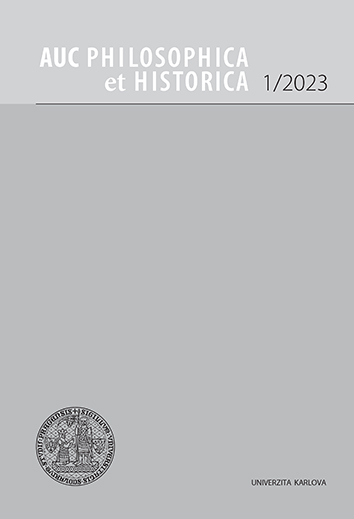AUC Philosophica et Historica je víceoborový akademický časopis zaměřený na humanitní a společenskovědné obory (filozofie, psychologie, pedagogika, sociologie, obecné, české a hospodářské dějiny, pomocné vědy historické a archivnictví, etnologie).
Časopis je indexován v databázích CEEOL, DOAJ a EBSCO.
AUC PHILOSOPHICA ET HISTORICA, Vol 1992 No 2 (1992), 107–121
K některým aspektům autority a moci v moderních sociologických paradigmatech
[Authority and Power from the Point of View of Basic Sociological Paradigms]
Vladimír Müller
DOI: https://doi.org/10.14712/24647055.2018.110
zveřejněno: 15. 01. 2018
Abstract
The text is concerned with problems of authority and power within general sociological theory. It seems to be necessary to recapitulate the basic theoretical schemes which general sociological theory has developed in this field. The text does not pretend to provide an exhaustive list of all theories about power and authority. It will rather show how the general concept of modern society is connected with power. The material elaborated in this text are the modern sociological paradigms. They are divided according to our theme into three types. Systems paradigm (Parsons. Luhmann) presents power as property of social systems which is not violent and enables a possible space for freedom. The structuralist one (Bourdieu) falls within the durkheimian tradition in which invisible, superpcrsonal structures determine the position of different people in society. The last one, the paradigm of practice (Giddens, Habermas, Touraine) is very important because of its critical relation to reality. These authors know that the laws of modern society are very impersonal (structural), but reconsider eventual possibilities of escaping from them (normative theory of violence, theory of communicative action, social movement theory). The whole text attempts to show that power is more complicated than political point of view-allows. Sociology should help to negate prejudices about society concerning the sphere of domination.
